New international troika investigates internationalization at CBS
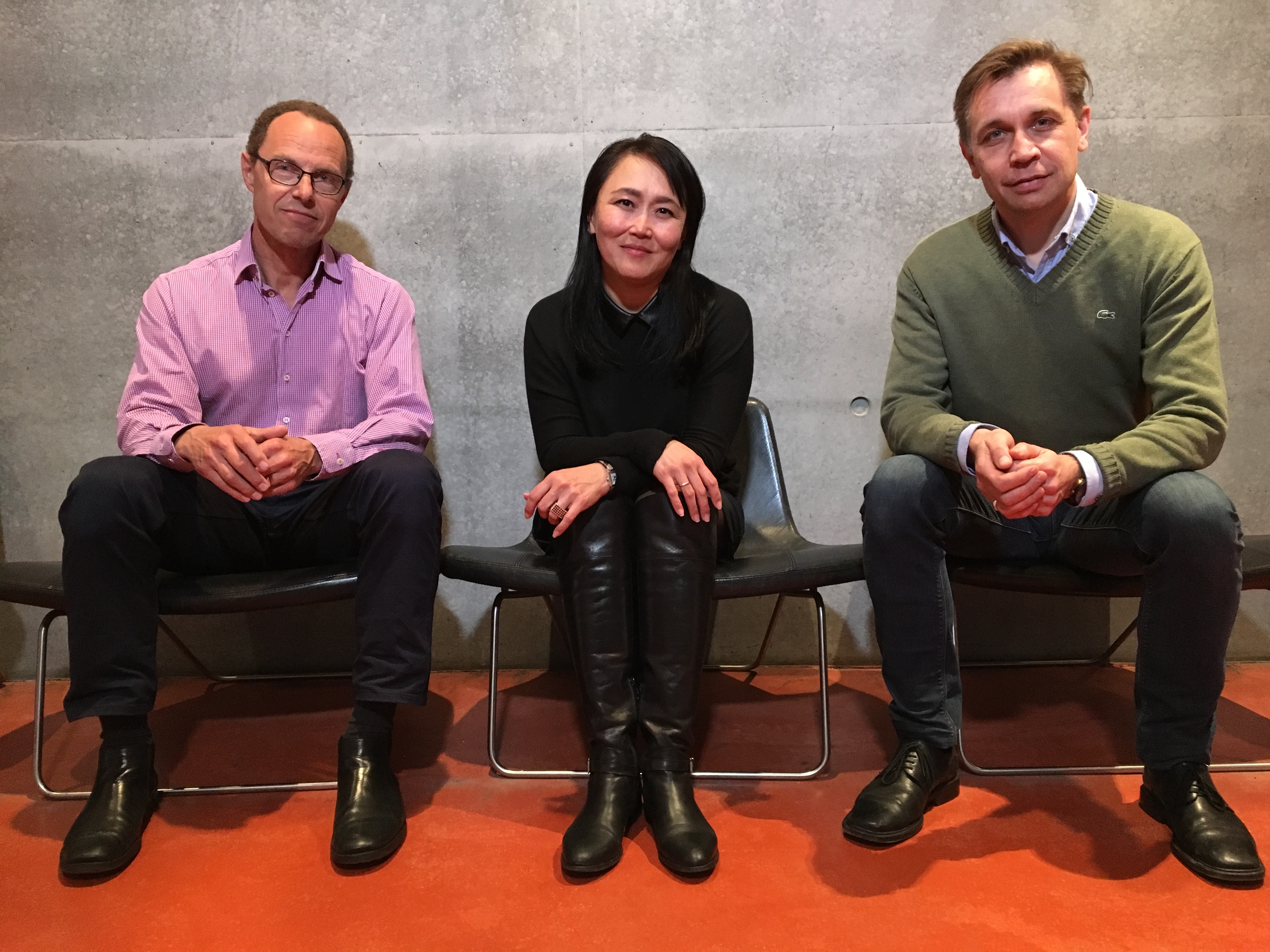
Tom Dahl-Østergaard, Dana Minbaeva, and Martin Jes Iversen are the new international troika at CBS. (Photo: Mette Koors)
When politicians and stakeholders start to ask questions about the necessity of internationalization, CBS has to be prepared to answer. Martin Jes Iversen, Dana Minbaeva, and Tom Dahl-Østergaard make up CBS’ new international troika, and they going to be the ones who find those answers. This spring, they will investigate CBS and its stakeholders’ opinions on internationalization, and the value of exchange programs.
What does internationalization mean to you?
This is one of the questions that CBS’ new international troika consisting of Dana Minbaeva, Vice-President for International Affairs, Martin Jes Iversen, Vice Dean for International Partnerships, and Tom Dahl-Østergaard, Director of the International Office, will ask CBS and its stakeholders this spring.
The reason for this is because politicians, stakeholders, and taxpayers have started to raise questions about the internationalization at the universities.
For example, during the last autumn international researchers, including Professor MSO, Brooke Harrington from the Department of Business and Politics, risked getting fined for sharing their knowledge with the Danish Tax Authorities (SKAT), as this was a violation of Danish Law.
Read more: Per Holten-Andersen: “Talented researchers are criminalized for sharing their knowledge”
International students were subject to criticisms as well. Figures from the Ministry for Higher Education and Science showed that students from EU countries owe the Danish state DKK 123 million in study debt.
Furthermore, politicians from the Danish People’s Party (Dansk Folkeparti) started questioning the relevance of programs being taught in English and proposed that all programs in English should have at least one course in Danish.
“We have to justify and explain the international activities, and we need to be even sharper on that exercise. Especially now, when people are raising questions like, why should we have programs that are only taught in English. In that sense, the argumentation is important,” says Martin Jes Iversen.
Why go on exchange?
Apart from asking stakeholders and CBS faculty about the meaning of internationalization, the international troika’s tasks also involve talking to the program directors, the study boards, and the students who went on exchange in order to see what the academic outcome of exchange programs are.
“Using the data collected by CBS, we will be able to compare students from the same program and see if there are any difference between students who did an exchange program, and the ones who didn’t. Where are the students landing jobs after they graduate? Do students who were exposed to international environments during their studies get jobs more easily?” asks Dana Minbaeva.
Once the new troika has gotten the data about the students, they want to develop business cases explaining exactly what it is that the students get out of going on an exchange. Being able to show those kinds of figures will be an important part of the argument in the end.
“If we want to improve ourselves, we need to start asking questions about why we are doing as we do, the benefits of sending students on exchange, and whether they are being sent off to the right universities,” says Martin Jes Iversen and adds:
“When it comes to the debates around internationalization, it is important to have strong arguments that are based on evidence. We are creating those arguments and are ready to articulate the relevance of internationalization.”
While agreeing on the desirability of collecting evidence on the benefits of going on exchange, Tom Dahl-Østergaard argues that not everything can be measured.
“Anyone who has studied abroad knows that the international experience is an eye-opener and a fast-track to personal growth and inter-cultural understanding. The employers, too, realise this. And the millions of students who go on exchange to and from countries all over the world are testimony to the importance of international student exchange,” he says.
A small country needs internationals
CBS is a diverse place when it comes to internationalization. 48 percent of the staff members are from outside of the Kingdom of Denmark, 5,111 out of 22,000 students are international, and 32 programs out of 62 are taught entirely in English.
But should politicians ask the Danish universities to teach in the language of their own nation? Would CBS still be a good university if the level of internationalization was a little lower than it is today?
“It is critically important that CBS keeps the same level of internationalization. But not only for CBS, also for Denmark,” he says and continues:
“We are a small country, and we are forced to work in a global market. This means that CBS has to equip the graduates with the right skill sets in order to work in that market. If we can’t do that, we don’t fulfill our mission,” says Martin Jes Iversen and gives an example:
“Novo Nordisk could never have evolved into what they are today by only employing Danes. And it’s the same for other Danish companies that wish to go abroad with their products. They need candidates with an international mind set.”
The first sentence of CBS’ strategy is: “CBS is an international business university” and that is an important part of CBS which cannot be diminished, as it would change CBS’ identity.
“CBS doesn’t have a strategy for internationalization per se, it is just who we are. Internationalization is a part of CBS’ DNA,” says Dana Minbaeva.



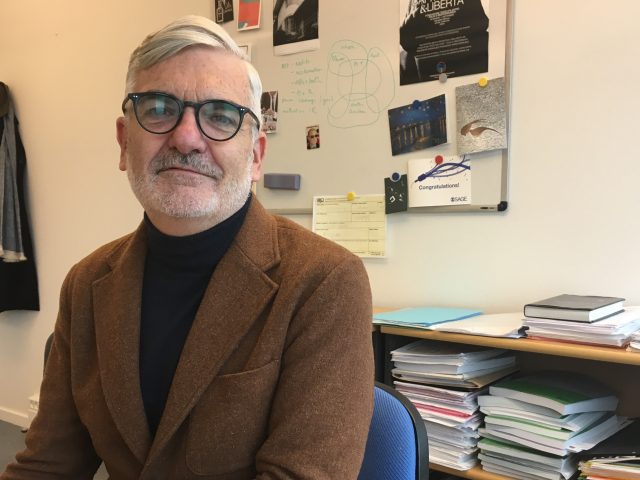
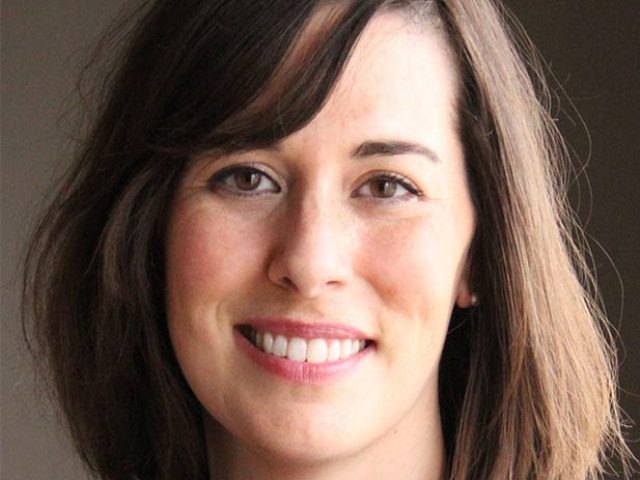
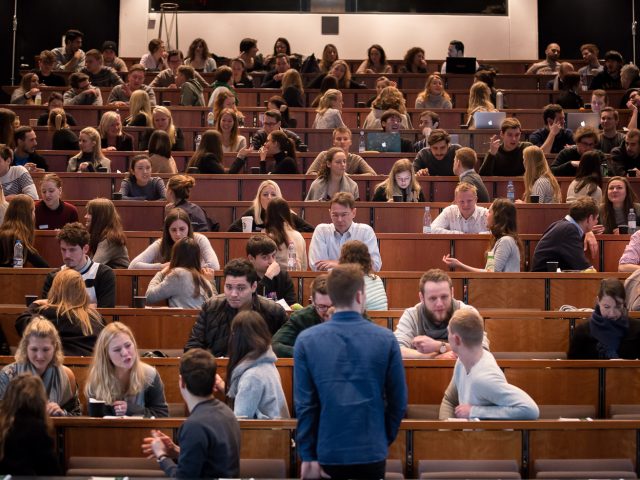

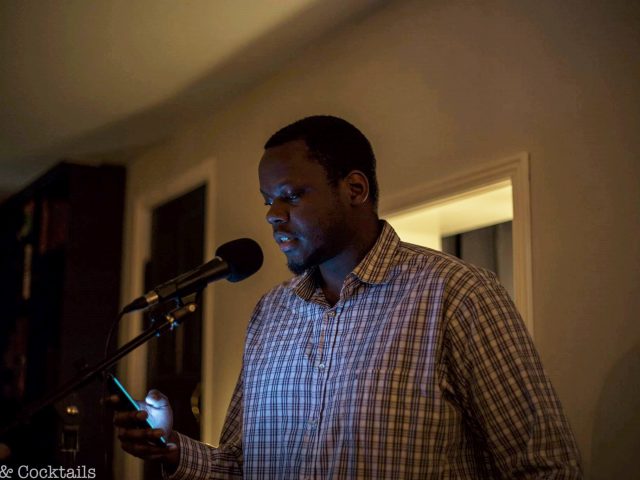




























































































































Comments